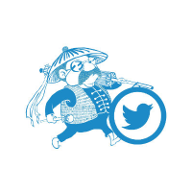









13 July 2016 by Suyen Hu

In the seventeenth and eighteenth centuries, China was much admired by intellectuals in Europe as an ideal society which followed Confucius’ teachings on respect for authority and the elderly and care for the young and the weak. A society like that would not suffer from the religious wars which had plagued the West and people would live in harmony with peace and contentment. However, after a few thousand years of Confucius’ teaching in China, the nation became stagnant, weak and powerless, as the young boy Thomas Staunton found out as he accompanied his diplomat father in 1793. Two centuries of decline led to the ten year cultural revolution in Red China from 1966-1976; Confucius was completely over-thrown and his temples were destroyed nearly in every corner of China.
By promoting traditional legends and stories full of wisdom, core good morals and values from the old China to Western children using our books, we also hope these children when they grow up can see the value of the old goodness to modern China which has been deprived of it for too long and sympathise with the subtle changes in the nation with heart and spirit. Liberty, freedom and respect for life, the fundamental Western values, can be found and echoed in ancient Chinese classics including the Confucian teachings. For the new Mandarin Candidates understanding of the culture and mastery of the language will be as powerful as with Thomas Staunton who helped to bring down our old and depressing feudal world.
***
We appeared in Nick Duerden’s article The Mandarin Candidate in the 26th May issue of I paper (page 32). Having been interviewed by Nick two weeks before its publication, we were keen to see what ideas he would come up with.
We must say Nick is a true British journalist with the British spirit of being open-minded, objective and neutral. His title The Mandarin Candidate alone attracts us to read on. Who can be the candidate? We can tell he subtly explained the emerging popularity of Mandarin as a foreign language in the UK as being mostly due to China becoming the world’s next super power, particularly in economic terms. What is reported by Nick in his article from his interview with the head teacher of Oxford high perhaps is the most typical motivation for private schools to make formal Mandarin learning compulsory, or at least part of the curriculum: “Who knows where the economy is going to be when this generation of children grow up”.
We also noticed from Nick’s good work that the Confucius Institute (perhaps the London branch) have about 50-70 students a year who pay their own fees. Many of them have taken the language course as an addition to their business degree. Again the driving power for these candidates to take on the second least popular foreign language is the opportunities to make business ties in the Far East. Compared to what we learnt from our educational exhibitions in Scotland and in England, what the Confucius Institute has achieved with the number of students who pay the fees (which have increased significantly) is a little bit disappointing from a pure business point of view. We learnt in Scotland that the Confucius Institute, backed up by Han Ban in China, opens hubs to offer free teaching support to primary and secondary schools and universities. This free teaching support includes teachers paid by the Confucius Institute and a certain amount of funding to buy learning materials. A few private and primary schools in England have also started working with the Confucius Institute. The most famous one perhaps is the prestigious Wellington College in Berkshire. Their Confucius Institute hub (with a beautiful Chinese pavilion) was opened by the Chinese Ambassador of the time. Whether or not Wellington College received the same support as the Scottish schools did from what we found out, we don’t know, but it is very likely that they received the same package. It is worth noting that Wellington College has opened a school in Shanghai. The tuition fees are at the same level as the UK headquarters, and students in their Shanghai school sometimes are branded as the new generation of the Chinese Upper Class.
We were mentioned and introduced by Nick as one of the small independent initiatives to encourage Mandarin learning from ancient legends in illustrated picture books for young children. Nick may have been slightly disappointed when he read our books, judging from our interview. He might be expecting something where his children or even he can learn the language very quickly and the difficulties can be broken down easily. However, we emphasized a lot of our effort is to re-write the stories in good English and make them equally exciting as English tales to children. Despite the limited time we could have with Nick at the interview, and also the limited space to write more about us, he explained in his article that the books are aimed to minimise British children’s sense of culture shock when they come across Chinese life and language or even visit China. This is quite what we want to achieve. However, the ultimate goal for us to achieve with our books is to nourish the passion and motivation in each child to make language learning a lifelong delightful mission to accomplish.
How can we achieve this? We don’t think a young child can be motivated effectively by promoting China as the next super power or by encouraging the child to open up more pathways for their future, because it seems far too distant and too far away in the long future. What we found from our informal conversations with passers-by who showed so much interest in our books at exhibitions big or small is that a considerable proportion of British people have connections with China, Hong Kong, Taiwan and other Chinese speaking communities such as Singapore and Malaysia. They either have relatives married to Chinese, or friends they made when travelling or studying in China, or they spent part of their childhood in places like Hong Kong and Beijing with their diplomatic or business parents. Similarly the student Joseph Coningsby from Oxford High, reported by Nick, who says Mandarin is a poetic language also spent time in Hong Kong.
So to us the best motivation for a young mind comes from the curiosity to learn about the people and the nation. Everyone in their life has plenty of chances to meet people from different corners of the world, particularly in our globalised era. It must be the ways in which different people speak and live their lives that make us curious to learn and decode the language and then start to enjoy the excitement this understanding can bring to us: friendship, opportunities and so on. At least this is what has motivated us to study English. We have always wanted to explore the English world with the language itself. Only through the language can we learn the differences of the culture, accept the differences and respect the people and the nation.
However, in history, mastering a foreign language may not win respect for the people and nation, but quite the opposite.
Every Chinese student learns about the Opium Wars at our history classes. Of course the Chinese textbook knowledge on the Opium Wars can be biased. There are so many interesting stories from both sides surrounding the reasons for the outbreak of the First Opium War. Many Chinese historians believe the Opium War was an indirect consequence of Lord McCartney’s state visit to Emperor Qianlong in 1793. From this visit Great Britain realised how weak and how far behind Europe the Qing Empire was in science and technology. When years of conciliation and negotiation seeking to open and widen trade with China failed, a war seemed the last choice. There was an interesting young boy who accompanied Lord MaCartney to China in 1792: Thomas Staunton. His father Sir George Staunton was appointed secretary to Lord MaCartney’s mission to China. During the trip, Thomas started to learn Mandarin. The long journey and visits to different places in China improved his Mandarin significantly and even the Emperor himself was impressed with his Chinese and awarded him gifts.
When Thomas Staunton returned to Britain, he became fluent in Chinese and a renowned orientalist. We (as Chinese) were told he was one of the key figures in the parliamentary debate about whether to open the fight with China or not. His knowledge of Chinese and the Qing Empire eventually convinced the English parliament to approve sending ships to the South China Sea.
We will never know what motivated the 12 year old Thomas Staunton to learn the language. One thing we can be certain of is that he saw a totally different world and people and a strange court which required ‘Kowtow’. This strangeness and difference would be exotic and exciting enough to motivate a young 12 year old to learn. However, it seems that the more he learnt the more he knew how to conquer the strange land. It is a shameful event in our history, but it illustrates how powerful the mastery of a language can be.
In our modern age we strongly believe the motivation comes from the curiosity to understand the difference of cultures. Who can be the Mandarin Candidate? In a free country no child will be forced to accept anything they don’t like or don’t accept or understand from the start. Without any tie to China or Hong Kong or without any sort of link to Chinese, are they happy to be the Mandarin Candidate? This is what we are doing. We want to introduce the British children to an exotic world full of mysterious stories and the wisdom of the Chinese people. They will know how the stories are written originally in characters made of skilful brush strokes and they will know a few words by matching the English with Chinese in colours. This is already a great leap forward. From the stories and the few words they can pick up by themselves, we hope they will fall in love with the culture and the language and they will never stop learning when they grow up. Like us, to study English is still our daily task.
